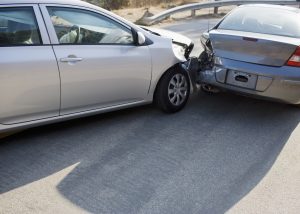Car accidents are unfortunate events that can leave a lasting impact on your physical, emotional, and financial well-being. In the immediate aftermath of a collision, it’s crucial to maintain a clear head and take appropriate steps to ensure your safety and protect your rights. Unfortunately, many people make critical mistakes in the chaos following an accident, which can lead to further complications. Here, we’ll discuss what not to do after a car accident to help you navigate these situations more effectively.
Panic and Flee the Scene
One of the worst things you can do after a car accident is to panic and leave the scene. Fleeing the scene of an accident, especially if there are injuries involved or significant damage to property, is not only illegal but can also result in serious consequences. Hit-and-run incidents can lead to criminal charges and a tarnished driving record, which could impact your insurance rates and future driving privileges.
Neglecting Medical Attention
Even if you feel fine immediately after the accident, it’s essential to seek medical attention as soon as possible. Some injuries, such as whiplash or internal trauma, might not show symptoms until hours or even days later. Neglecting medical attention can not only exacerbate your injuries but also make it more challenging to establish a connection between the accident and your injuries for insurance claims.
Not Contacting the Authorities
After a car accident, it’s crucial to contact the appropriate authorities, such as the police, even if the accident seems minor. A police report can provide an objective account of the incident and help determine fault. This report can be invaluable when dealing with insurance claims and legal proceedings.
Admitting Fault
In the aftermath of an accident, emotions are running high, and you might feel the urge to apologize or admit fault, even if you’re not entirely sure who is to blame. It’s important to refrain from making statements that could be interpreted as an admission of guilt. Leave the determination of fault to the authorities, insurance companies, and legal professionals who can assess the situation impartially.
Neglecting Documentation
Gathering evidence and documentation is crucial after an accident. This includes taking photos of the scene, the vehicles involved, and any visible injuries. Additionally, exchange contact and insurance information with the other party and gather contact information from witnesses if possible. Neglecting this step could weaken your case when dealing with insurance companies or pursuing legal action.
Delaying Notification to Your Insurance Company
Promptly notifying your insurance company about the accident is essential, even if you believe the other party is at fault. Delays in reporting an accident might lead to complications when trying to file a claim or receive compensation for damages. Most insurance policies have specific timeframes within which you must report an accident.
Settling Too Quickly
Insurance adjusters might pressure you to settle quickly after an accident, especially if they sense that you’re vulnerable or unaware of your rights. Avoid settling before fully understanding the extent of your injuries and the long-term impact they might have on your health and finances. The injury attorneys at Smith LaCien LLP suggest always consulting with a legal professional if necessary before agreeing to any settlement.
Neglecting Legal Advice
If the accident results in serious injuries, significant property damage, or disputes over fault, it’s wise to seek legal advice. An experienced personal injury attorney like the accident lawyers at Grungo Law can guide you through the legal process, help you understand your rights, negotiate with insurance companies, and represent you if the situation escalates to a lawsuit.
A car accident is a distressing event that requires careful handling to ensure your safety, well-being, and legal protection. By avoiding these common mistakes, you can navigate the aftermath of a collision more effectively. Remember to stay calm, seek medical attention, document the scene, notify the authorities and your insurance company, and, if needed, consult legal professionals. Taking these steps will help you protect your rights and ensure that you receive the appropriate compensation for the damages you’ve suffered.




No Comment